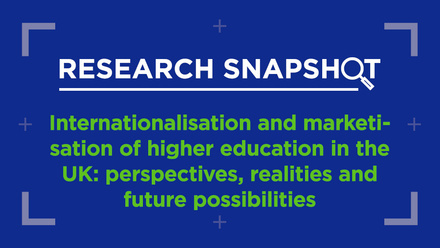Social media: more listening, less talking
.jpg.jpg)
Social media isn’t rocket science, you just have to be smart about it. It’s all about listening. Listening to your audience – in our case: students. It’s with this part where I still see many companies and organisations struggling. When I am asked to evaluate a web page, 9 times out of 10, this is the problem. The reason your web page or Twitter account is not effective, is because you’re not hearing about what your audience wants. You are only thinking about what you want to tell them.
Social media is not a one-way street. If you want to be successful, you have to listen – listen to what they say about you, about your field and to what is being said in general by your followers and fans.
Digital immigrants vs digital natives
This is probably our biggest challenge: getting our Babyboom and GenX minds wrapped around something that feels distant to us, even unnatural. Let’s be honest, we don’t really want to share our life and ideas with the world. We’re actually not that social, at least not online. However, if we want our students to actually listen to us, we have to stop thinking like us and start thinking like them: GenY and soon to arrive GenZ. In other words, change from digital immigrants into digital natives.
Dread the negative
This part is scary though. Before social media, life was so much easier. We wrote our texts – preferably with long and complex sentences – we created brochures, websites, posters, ads and what not. We decided what content came out of our offices. We were in control. That was the past. The present is that content is no longer ours. Whoever wants to talk about us can, be it positive or negative. And obviously we – and even more our execs – dread the negative.
Thick walls
Should we however dread the negative? During the last five years working with social media we’ve had our share of criticism on Facebook and Twitter. The thing is, even criticism can be turned into something positive and can be used to your advantage. I found that being honest and transparent was the key. Ignoring it and hoping it would go away or hiding behind the thick impersonal institutional walls was not. Showing the world how you deal with criticism says much more about your institution than the criticism/critique itself.
Be smart
Back to being smart about social media. You don’t have to think of everything by yourself: your fans and followers, your students, will tell you what they want from you. No, they don’t want the ‘so many-eth research’ or ranking publication (use your website for that), but they do like to hear about issues related to their (student) life or the things that make your specific institution special. This differs per institution, so it’s your job, as a marketer or recruiter to figure out what exactly makes them tick and this you do by listening.
By Jessica Winters
Jessica is coordinator International Marketing & Social Media at the University of Groningen in the Netherlands. She was an early adopter of social media and the University of Groningen was the first higher institution in the Netherlands to become active on social media. Jessica was also one of the presenters of the session ‘Social media for effective recruitment: best practice from across the globe’ which took place during the 2012 EAIE Conference.
Do you have any social media tips or best practice examples to share? Or did you attend the session on social media at the EAIE Conference? Let us know your thoughts!






